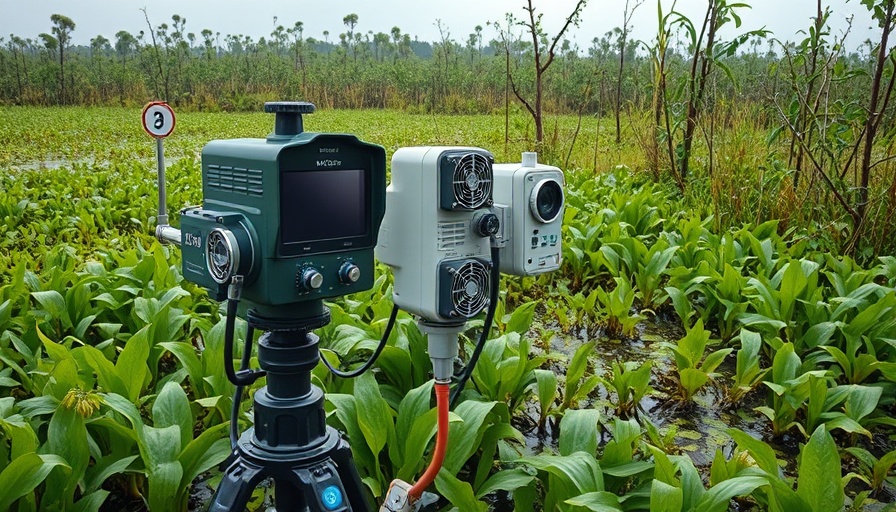
How Rising Temperatures Influence Wetland Methane Emissions
As global temperatures rise, our planet's wetlands—these vital ecosystems—are facing the heat, literally! A new study from researchers at the Smithsonian Environmental Research Center (SERC) indicates that rising temperatures could lead wetlands to emit alarmingly higher levels of methane, a potent greenhouse gas. Traditionally, wetlands have served a dual role, acting as both sinks and sources for methane. But under the pressure of climate change, this balance is at risk, pushing wetlands toward becoming significant methane emitters.
Understanding Anaerobic Microbial Activities
The study dives deep into the micro-level operations of wetlands, particularly the roles played by anaerobic microbes. Living in oxygen-poor environments, these small but mighty organisms consume methane by utilizing sulfate compounds. Under normal temperature conditions, these microbes could effectively remove up to 12% of methane emissions. In saltier conditions with higher sulfate levels? They were able to escalate their efforts, removing a whopping 70% of methane! However, this effectiveness is being undermined as temperatures rise.
The SMARTX Experiment: Mimicking a Warm Future
The centerpiece of the SERC study was the SMARTX experiment, where researchers pumped up the temperature in select wetland sites by an astonishing 5.1 degrees Celsius using infrared lamps and cables. This disruption mimics what our planet could look like as global warming continues unchecked. No heat wave is complete without a rise in carbon dioxide levels, so the experiment also saw increased CO2 levels, which is crucial for a realistic depiction of future scenarios. With the temperature hike, the anaerobic microbes became overwhelmed, unable to keep pace with the increasing methane produced by warming soil and other active microbes. Ultimately, researchers found an alarming uptick in methane emissions—up to four times the normal levels!
The Ripple Effects of Increased Methane Emissions
Why should we care? Methane is a powerful greenhouse gas—second only to carbon dioxide in its climate impact. Its potency as a contributor to global warming makes managing methane emissions a crucial aspect of our climate strategy. The new findings suggest that if wetlands turn into larger methane sources, tracking these emissions becomes essential. If scientists don’t account for these methane spikes, our carbon reduction goals could be compromised, leading us further off-course in our fight against climate change.
Connecting Wetlands and Human Health
There's a bigger picture here that resonates with eco-conscious individuals. Wetlands are not just about carbon sequestration; they also contribute to water quality, flood protection, and biodiversity. As awareness grows about our climate's fragility, understanding wetlands' roles can empower communities to advocate for their preservation. Fitness enthusiasts and wellness advocates might care about this connection—healthy ecosystems contribute to overall human health, linking environmental sustainability with personal well-being.
Action Items for Eco-Conscious Individuals
For those looking to take action, every small step counts! Consider reducing your carbon footprint through improved energy efficiency, supporting renewable energy initiatives, or even advocating for local wetland conservation efforts. Engage in community discussions about climate strategies and push for policies that protect these vital ecosystems.
Education is also key; share these findings with friends and family to spread awareness about the fragile balance that wetlands maintain in the context of climate change. The choice is ours—conservation efforts today can help shape a sustainable future for generations to come.
As you consider your contribution to the planet, remember: protecting wetlands is not just about carbon sinks, it's about ensuring the well-being of our world—and our community as well.
Final Thoughts and Call to Action
If we want to keep our planet and health thriving, it’s crucial to recognize the significance of wetlands in the climate equation. The latest research points towards a pressing need for a comprehensive approach to mitigate methane emissions. Every action counts, whether it's changing personal practices or advocating for broader reforms. Get involved, stay informed, and inspire others to do the same!
 Add Row
Add Row  Add
Add 




Write A Comment